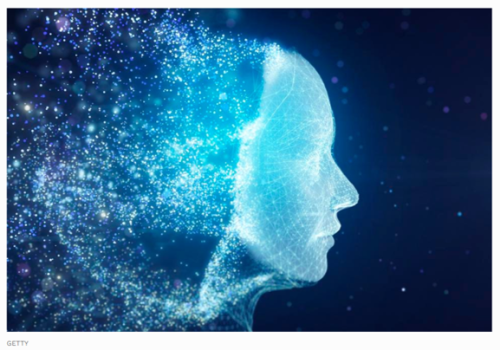K
Kathleen Martin
Guest
The rhetoric surrounding artificial intelligence (AI) as the panacea for solving business problems has created some skepticism among marketers. It can also be overwhelming.
AI might seem like a cure-all for the issues with your data or marketing and sales analytics. In reality, the technology is none of these things, and AI applications can be classified into several categories, depending on the purpose. There are three “AI’s” that I believe are critical for marketers:
• Automated integrations of data, processes and external events intelligence to enable faster and real-time decision-making.
• Actionable intelligence for organizations, powered by a powerful platform for developing insight.
• Augmented intent data that aggregates multiple data types per market to ensure that it can be easily understood and used by marketing and sales organizations.
For certain, the use of AI by marketers is taking hold. Revenue increases from adopting AI are reported most often in marketing and sales, while other benefits include the ability to predict the likelihood of buying, cost reductions and customer service analytics, according to McKinsey. And with projections that the global enterprise AI market will reach $53.06 billion by 2026, it’s too tantalizing not to consider the transformational potential of AI and machine learning for B2B marketing.
AI has clearly moved beyond the hype; algorithms are continuously learning and can self-correct, giving them the ability to transform work and create a competitive advantage.
Understanding AI’s potential and its benefits can help you and your business benefit from the technology rather than being overwhelmed by it. To prepare, businesses should standardize their definition of AI, assess their readiness for AI solutions and define measurable and transparent ROIs for AI initiatives.
Here are five ways I believe B2B marketers will use AI in the next few years:
Increase lead generation capabilities. One of the core functions of AI is the ability to collect data and extract insights — in this case, from marketing and sales data using machine learning and predictive analytics. Additionally, some AI tools can provide insights about prospects and customers to improve the customer experience and conversion rates.
Gain more actionable customer insights. AI is used to gather information and analyze it to engage more effectively with customers and prospects. Predictive analytics will help forecast purchasing decisions based on buying patterns. This is important and immensely useful because it’s harder to see buying patterns in a B2B model than in a B2C one.
Continue reading: https://www.forbes.com/sites/forbesagencycouncil/2021/08/26/five-ways-artificial-intelligence-will-change-the-b2b-marketing-industry-in-the-next-four-years/?sh=3c9d9c4b50b2
AI might seem like a cure-all for the issues with your data or marketing and sales analytics. In reality, the technology is none of these things, and AI applications can be classified into several categories, depending on the purpose. There are three “AI’s” that I believe are critical for marketers:
• Automated integrations of data, processes and external events intelligence to enable faster and real-time decision-making.
• Actionable intelligence for organizations, powered by a powerful platform for developing insight.
• Augmented intent data that aggregates multiple data types per market to ensure that it can be easily understood and used by marketing and sales organizations.
For certain, the use of AI by marketers is taking hold. Revenue increases from adopting AI are reported most often in marketing and sales, while other benefits include the ability to predict the likelihood of buying, cost reductions and customer service analytics, according to McKinsey. And with projections that the global enterprise AI market will reach $53.06 billion by 2026, it’s too tantalizing not to consider the transformational potential of AI and machine learning for B2B marketing.
AI has clearly moved beyond the hype; algorithms are continuously learning and can self-correct, giving them the ability to transform work and create a competitive advantage.
Understanding AI’s potential and its benefits can help you and your business benefit from the technology rather than being overwhelmed by it. To prepare, businesses should standardize their definition of AI, assess their readiness for AI solutions and define measurable and transparent ROIs for AI initiatives.
Here are five ways I believe B2B marketers will use AI in the next few years:
Increase lead generation capabilities. One of the core functions of AI is the ability to collect data and extract insights — in this case, from marketing and sales data using machine learning and predictive analytics. Additionally, some AI tools can provide insights about prospects and customers to improve the customer experience and conversion rates.
Gain more actionable customer insights. AI is used to gather information and analyze it to engage more effectively with customers and prospects. Predictive analytics will help forecast purchasing decisions based on buying patterns. This is important and immensely useful because it’s harder to see buying patterns in a B2B model than in a B2C one.
Continue reading: https://www.forbes.com/sites/forbesagencycouncil/2021/08/26/five-ways-artificial-intelligence-will-change-the-b2b-marketing-industry-in-the-next-four-years/?sh=3c9d9c4b50b2

